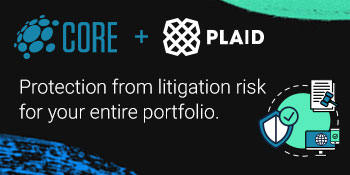Tesla Shareholders Reject Deep Sea Mining Moratorium As Global Environmental Debate Continues
Author: Stjepan Kalinic | June 14, 2024 04:13pm
Tesla Inc. (NASDAQ:TSLA) shareholders voted against a proposed moratorium on sourcing electric vehicle battery metals from deep-sea mining.
The growing debate over deep-sea mining reflects the industry’s need for critical minerals found in polymetallic nodules on the ocean floor. These nodules, rich in metals like cobalt and nickel, are essential for electric vehicle (EV) batteries.
At the company’s annual shareholder meeting, 78% of investors opposed the proposal put forth by the nonprofit organization As You Sow, which promotes corporate social responsibility. Filed in December, the proposal highlighted Tesla’s lagging position on this issue, urging them to join other automakers such as Volkswagen, Renault, BMW and Rivian in supporting a moratorium.
Still, Tesla fought to remove the proposal from this year's shareholder meeting, arguing that it aimed to micromanage the company, a stance later dismissed by the SEC.
Now Read: Elon Musk’s $56B Payday Wins In Landslide: ‘Next Chapter In The Tesla Growth Story’
Despite pressure, General Motors Co (NYSE:GM) shareholders voted overwhelmingly against similar proposals. GM’s received only 12% support, just enough for the proposal to be revisited next year.
Tesla’s board emphasized its commitment to responsible sourcing according to Organisation for Economic Co-Operation and Development guidelines, though these do not yet cover deep-sea mining.
The debate over deep-sea mining is complicated. Advocates highlight its potential to provide a stable supply of critical minerals necessary for the energy transition, potentially reducing reliance on terrestrial mining, which has its own environmental and social issues.
Critics such as Greenpeace warn of the irreversible damage to fragile deep-sea ecosystems, including biodiversity loss and marine life disruption.
Countries such as Norway have shown strong support for this industry, with plans to mine Arctic seabeds, whereas others such as Germany and Canada, alongside the European Union, advocate for a moratorium, citing severe environmental concerns.
The future of deep-sea mining may hinge on the upcoming International Seabed Authority (ISA) leadership elections in July. The ISA, overseeing regulations for mining in international waters, plays a crucial role in determining how and if deep-sea mining will proceed.
Current Secretary-General Michael Lodge, seeking a third term, faces opposition from Brazilian marine scientist Leticia Carvalho, whose election could shift the ISA’s focus toward a more environmentally conscious framework.
Also Read: EnCore, Boss Energy Target Full Capacity By 2026 As Alta Mesa Uranium Plant Resumes Operations
Photo: Shutterstock
Posted In: GM TSLA





